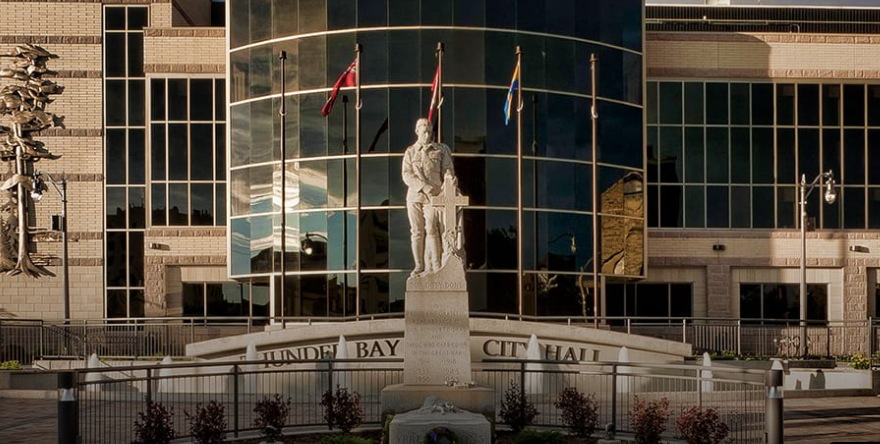THUNDER BAY – City council rejected one effort to transform its downtowns Monday as it endorsed another, approving more than a million dollars for Victoriaville demolition but voting down a proposal to put up two city-owned parkades for sale.
Council also reviewed planned land use and development changes as the city develops a new zoning bylaw that could allow for more second units and development on small lots.
Victoriaville redesign work approved
Council approved the next step in the demolition of the Victoriaville mall, okaying $1.3 million for design work to demolish the structure and design a reopened stretch of Victoria Avenue, including new public plazas.
Physical demolition work isn’t expected to begin until 2023, while reconstruction of Victoria Avenue is estimated for completion in October 2025.
Some councillors expressed frustration at that timeline Monday, but unanimously endorsed the plan after hearing the complexity of the work, which will leave some buildings inside Victoriaville standing, left little room to accelerate the plans.
City revamping zoning rules
The City of Thunder Bay is previewing a new zoning bylaw that will bring major changes to planning rules, ahead of public consultations on the document later this year.
A first draft of the new bylaw prepared by city administration would allow more flexibility for developers and residents, allowing for development on smaller lots and more flexibility for second units, for example.
Councillors urged the public to participate in consultations planned for November and December, saying the bylaw will shape the city for decades.
Council nixes parkade sale
Council firmly rejected a push to put Thunder Bay’s two city-owned parkades up for sale on Monday.
Councillors heard from administration and local business groups that while the structures might lose money, they still offer valuable parking capacity that provides planning flexibility as the city looks to revitalize its two downtown cores.
Encampment response protocol
Mayor Bill Mauro offered an update on the city’s role in addressing homelessness. The mayor announced in September the city would coordinate efforts to respond to concerns from community members over a makeshift encampment where some without a home have gathered at the County Fair mall.
The mayor emphasized his view that “as a corporation, [the city doesn’t] own homelessness” as an issue and already does a great deal to support organizations that offer supports, calling for more provincial and federal support.
Mauro reported the city has convened a wide range of health and social agencies, police, and Indigenous organizations to develop collaborative protocols to address homelessness in the city.
Councillors widely endorsed Mauro’s approach.
Synergy North rate change approved
Synergy North receive approval from council to transition from its current rate minimization model to a rate-of-return model, joining the majority of utilities in Ontario.
The change will see Synergy North begin paying off a note payable to the city created when Thunder Bay Hydro was incorporated in 2000, in the midst of a restructuring of the provincial electricity system.
That’s estimate to cost residential rate payers about $9 to $10 more per year as of 2024, City of Thunder Bay treasurer Linda Evans estimated.
However, the change could reduce municipal taxes for the median city property owner by $12 to $21 a year, the report found.
The transition to the new rate model still requires approval from the Ontario Energy Board.



